People keep asking me, “how was the Chico Review?” I’ve been home a week and I almost regret telling anyone that I was going because I don’t know how to communicate the full breadth of the experience in one fleeting conversation. It would be like asking how motherhood is: I’d have to write you a dissertation. Meaning doesn’t come until after an experience ends and enough time has past to process what happened. The Chico Review isn’t over for me; I’m still processing it. I could try to slap together a nice linear story with clean lines and a definitive eureka moment. That story is in here somewhere, but it isn’t the story I’m capable of telling with any conviction. This story has to throw you around a bit, it has to shake you up. I hope it leaves you with questions.
I am a different person now. My son says he doesn’t recognize me and even though I know he’s being a little shit, I half believe him. Maybe there is a part of him that tapped into a very real change that took place this past week. I am not the same person that kissed him goodbye.
I’m sitting on the steps of the conference center with Sharday. We’re talking about our latest reviews. A family enters the courtyard from the resort lobby. I don’t know what caused the crying, I assume he fell and hurt himself, but the moment his small voice begins to wail we both look up and scan the yard for him. We say something along the lines of “poor little guy” and then fall into silence as we listen to his cries. Then we are both crying, holding each other, our mother chests aflame with longing for our own children who seem so far away, heartstrings tied together by this small weeping stranger on the lawn.
What does motherhood have to do with the Chico review? When you are not a mother - nothing. When you are a mother - everything.
Sally Mann isn’t coming. I sit in my car in the Chico parking lot only just arrived, reading the email. Sally Mann is not able to attend due to litigation - devastating news. I don’t have time to think about that now, I’m here. David Campany announces at the beginning of his keynote speech “I can’t be Sally, but I’ll try to be a Man”. He talks about Magdalena Wywrot’s Pestka and I’m grateful to see a mother’s work given so much attention and care. I wonder what it’s like, as a man, to step inside a woman’s world and shape it. I clumsily ask him this question. He doesn’t have an answer, but he did note at the end of the presentation, “If you know exactly what you’re doing, there is something dead about that. The not knowing is an extraordinary creative force.”
Sage Sohier didn’t look at my prints, she read my mock book. She read all the words.
I’m sitting across the table from Daniel Arnold. I want to talk to him about versatility, movement and the dynamic energy in his images, but I am neck deep in self doubt because an hour before someone called my work “Halloweeny” and my unstable confidence took a nose dive. Dan holds up a picture of my daughter trying to catch raindrops I her mouth - a magical moment from our trip to Tofino this same time last year - and asks “do you like this picture? Because if you don’t believe in your work, no one else will”.
“Yes,” I say, holding back tears, “I do” and I really mean it.
“then Fuck all these assholes”.
I couldn’t have asked for a better pep talk.
Making the work is fun, sharing the work is excruciating. You have to be two things at once: 1. deeply invested and personally raw, 2. distant enough to remain open. This is a process; it shouldn’t happen overnight. But for me it did.
I walk into a house that is half structure, half nature. A fox and a hedgehog run to me as if they are pets. I know they are wild, but they are also mine. I pet them and they joyfully bound around me. Suddenly, a golden retriever bolts toward us. I know the retriever is also mine, and that it will attack the fox and hedgehog with the intent to kill. I tell them to run while I attempt to thwart the efforts of the dog. Then I wake up.
The desire to please and be liked will kill your resourcefulness and betray your intelligence. Do not domesticate. Self-preservation will not serve you here. Stay open, stay curious. These are your resources, use them.
Revelation. I walk out of my room that morning with a lot less insecurity and fuck load more resilience.
Dinner at the old saloon. Someone is talking about doing a podcast episode interview with male photographers who shoot their families. “You should do one on mothers as well,” Sharday suggests.
“Well men taking pictures of their kids is more uncommon.”
I think about Memory Cult, about all the incredible mother artists who’s work leaves me breathless week after week. Why is a man taking an interest in the lives of his children more interesting than a woman’s? It is more uncommon, that’s for sure. And we do need representation of men who document family life but the disinterest in interviewing mother photographers raises my hackles. Is a photograph of a child more artistically interesting or valid when shot by a man?
I find Marshall’s mock book in the sea of attendee projects strewn about the tables in the conference center. Work share. I’ve been in the ring with imposter syndrome for the past 3 days - we’re already halfway through reviews and we had no schedule today, a kindness. Marshall’s book is a blank sketchbook with pictures glued in. He’s sketched these incredible drawings into some of the pages with what looks like oil pastels - black, white, and grey. It’s raw and gritty. It’s art and I love it. I find him in the crowd and tell him how beautiful it is. “Where is your book?” he asks me. “I didn’t bring it. It’s not getting good reviews and I’m just too embarrassed to bring it out anymore”.
“You put all of yourself into that book,” he says, “don’t hold back.”
I make paper. I make book covers. I screw bind them together and sequence my project to the best of my amateur abilities, attempting to tell the story of my life. It’s imperfect but I don’t care. I’m not trying to showcase my book making skills, I’ve never made a book by hand before. I just want to show that I am willing to work hard - that I put in effort. Many of the reviewers told me it was overboard; the form of the book takes away from the impact of the work. They are right. I see it, and agree. I never thought in a million years I would be told to put in less effort, but the saying goes “less is more”. I work so hard because I feel like I have something to make up for. I doubt myself, my abilities, my capacity to communicate emotion visually. I don’t trust myself and it shows.
“You shot yourself in the face right out of the gate” Clint Woodside tells me and I know exactly what he’s talking about. Don’t ever apologize for your work. If you can’t say something nice, shut the fuck up.
“Stop thinking about what you are doing and just shoot.”
He’s right, I think WAY too much. Art is not a product of the mind, it is a product of the body. Art comes to us from the realm of the body. I know this. I preach this. Get out of your fucking head. You will encounter many limitations in your quest for artistic prowess and recognition. Do not be your own limitation.
My eyes are closed and I’m listening to Sharday make kissy noises to her kids over facetime. It’s after midnight - the best time for her to talk to her family on the other side of the world. She asks about their day and listens intently to every detail. We only knew each other online before Chico - through Memory Cult - but we are instant friends. She is my motherhood inspiration. I want to be more like her.
Sometimes I say that I am more water than human, but if I am water, what is my mind for? Filtration - to keep the sludge out. It is the job of the artist to be mindful of what they eat. Eat what you want to shit. What is the opposite of consumption? Fasting. Pouring into something. “You don’t need external references,” Tim Carpenter tells me, “You are your own reference. You just need to self-reference.”
I consider how much visual noise I consume. I’m going to diet when I get home. If I am my own reference, I am also my own authority. I do not need to outsource intuition.
“What can I do for you?” Matthew Genitempo asks me.
“I want you to invest yourself enough in my work to tell me the truth”. I wish I had had the guts to say that to every reviewer I met with before him, but I’ve said it now. There is no going back.
He uses words like “restraint”, “revisit”, and “slow”. He says I can push the truth, “don’t let the truth be a limitation”. He asks me who inspires me and my mind is blank except for Bela Tarr . I wish I had mentioned Erinn Springer, or Gabrielle Duplantier, or Ruth Lauer Manetti, or Carla Williams or Sally Mann for godsakes! Why didn’t I mention Sir Gawain and the Green Knight or anything from literature, or my Willow tree, or my kids or the Dirt? I asked Matt about symbol and metaphor, why didn’t I mention Jung?
You can’t go back. The Turin Horse will have to do.
Women, Mothers, Photography, Artistic Study = Memory Cult. For art photographers and mothers, it’s an oxygen tank when you’re drowning under water. Anastasia Pagonas is the gateway drug for women/mothers to the art world. She brings in Jesse Lenz as a guest in the visiting artists series and he mentions the Chico Reivew, a photobook retreat put on by his publishing house Charcoal books. Sally Mann is going as a keynote speaker, which is significant because the project I’ve been working on began after I read Hold Still and the opportunity to meet and talk with Mann feels like a full circle moment.
I don’t have the work to get in. Only 64 applicants are invited to go each year. Work hard this year, try for 2026. Then Charcoal sends out a final call for applications; the last day to apply. I submit because “I need the rejection letter”. To not apply meant I was self-rejecting. You will be rejected by many people in this world, but you don’t need to be one of them.
I call my cousin crying about how embarrassed I am that I submitted such an incomplete project; that I submitted such a deeply personal project that also feels so incomplete, a project about childhood, about motherhood. “But I had to,” I told her, “I didn’t have anything else.”
I forgot to take notes after my session with Mark Power; I only remember this: I did not have the book with me. “I see this with text, like a poetry/photobook” he muses. Bang on. His vision is so close to mine and I kick myself for not having the book to show him. I tell him about it and offer to recite the first prose in the sequence. He says “yeah do that” and listens while I recite:
“In the beginning, two hands shaped me; one a fearful absence, the other warm but gripped by sorrow / and I soft and pliable / a small animal alone in their wild. Our home was humble and dark, hidden in the shadows of mountains. I ate wildberries and goat turds / too young to tell the difference / I slept under stars / a rough canvas the only barrier between me and a feral moon…”
I open my mailbox to a parcel from Charcoal. It’s wedged in the box in this unnatural way and it takes some time to work out of the too small hole the post-people have crammed it into. I scrape my hand in the process but am finally able to hold it in my hands. I’m surprised to see it, wondered if March’s book of the month came early. It’s Oddette England’s The Long Shadow. I go through it carefully and am struck by how at home I feel in this book. I could have taken these pictures. I could have written these words.
“I see a picture I want to take. I get ready and frame it, / and he stands in front of me and / I lose the picture. / Staying at home with your kids or going to work / Choosing the art of the life./ Why choose. / She would have tried to do both.”1
It’s taken me a long time to give my life as a mother real creative attention. It’s embarrassing to say but it’s true. Even though my youngest is already 6, I am still in the process of becoming a mother, I am still learning how to be present, still fighting the urge to mentally escape. If I had been given Marion Post Wolcott’s ultimatum, I know I would have chose the same. I am grateful no one ever demanded I make that choice. But I am also a mother who experiences tension between who she is in relation to others and who she is in relation to herself. I’m grateful for Wolcott’s quiet rebellion. I love that she took pictures of her life even as she was told not to.
Motherhood has felt like a limitation to my creative process, and sometimes it is, but then I remember Tania Franco Klein’s voice filling the room; “Limitations are a source of strength. They are not weaknesses. Embrace limitation.”
In hindsight, didn’t have a bad review but I did meet many brilliant people with conflicting tastes. Each one was gracious and offered me something good to chew on. Proverbs notes that in a multitude of counsellors, there is wisdom. Tania Franco Klein said “If everyone is asking the same question or saying the same thing that is a cue to reconsider your approach.” At Chico, I gathered with a multitude of counsellors and I am so grateful for every morsel of insight offered to me.
Many different reviewers agreed: Shoot anything and everything that draws your attention because if it wasn’t important it wouldn’t have caught your eye. Shoot, and worry about what it means later. Meaning making is a cerebral process, it falls under the realm of logos. Art itself is not logical, it is somatic - it is felt - feeling and intuition must remain sovereign. Trust the Body. Trust your intuition. Finding the meaning is future Sasha’s job.
Odette England, The Long Shadow, p. 96




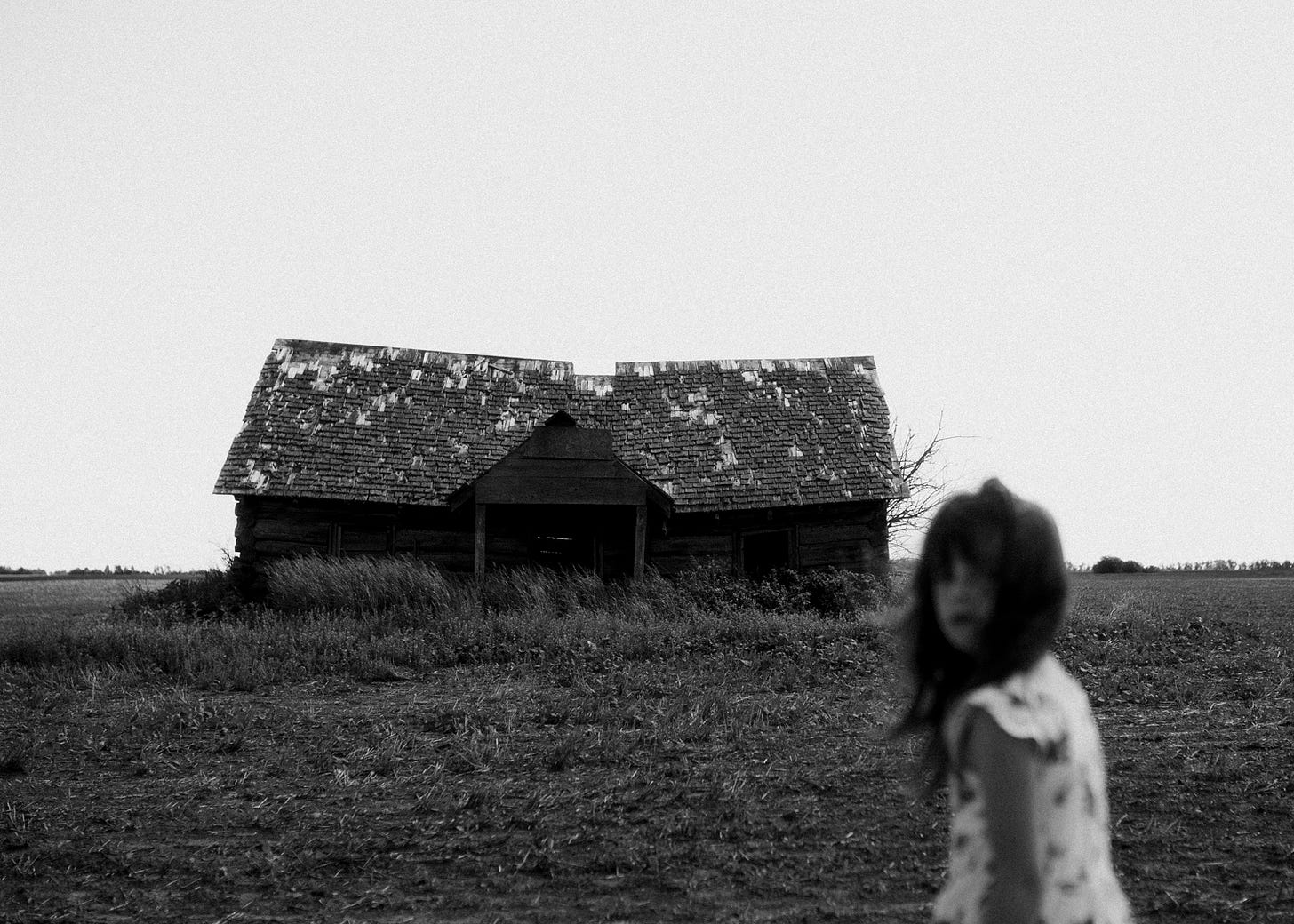
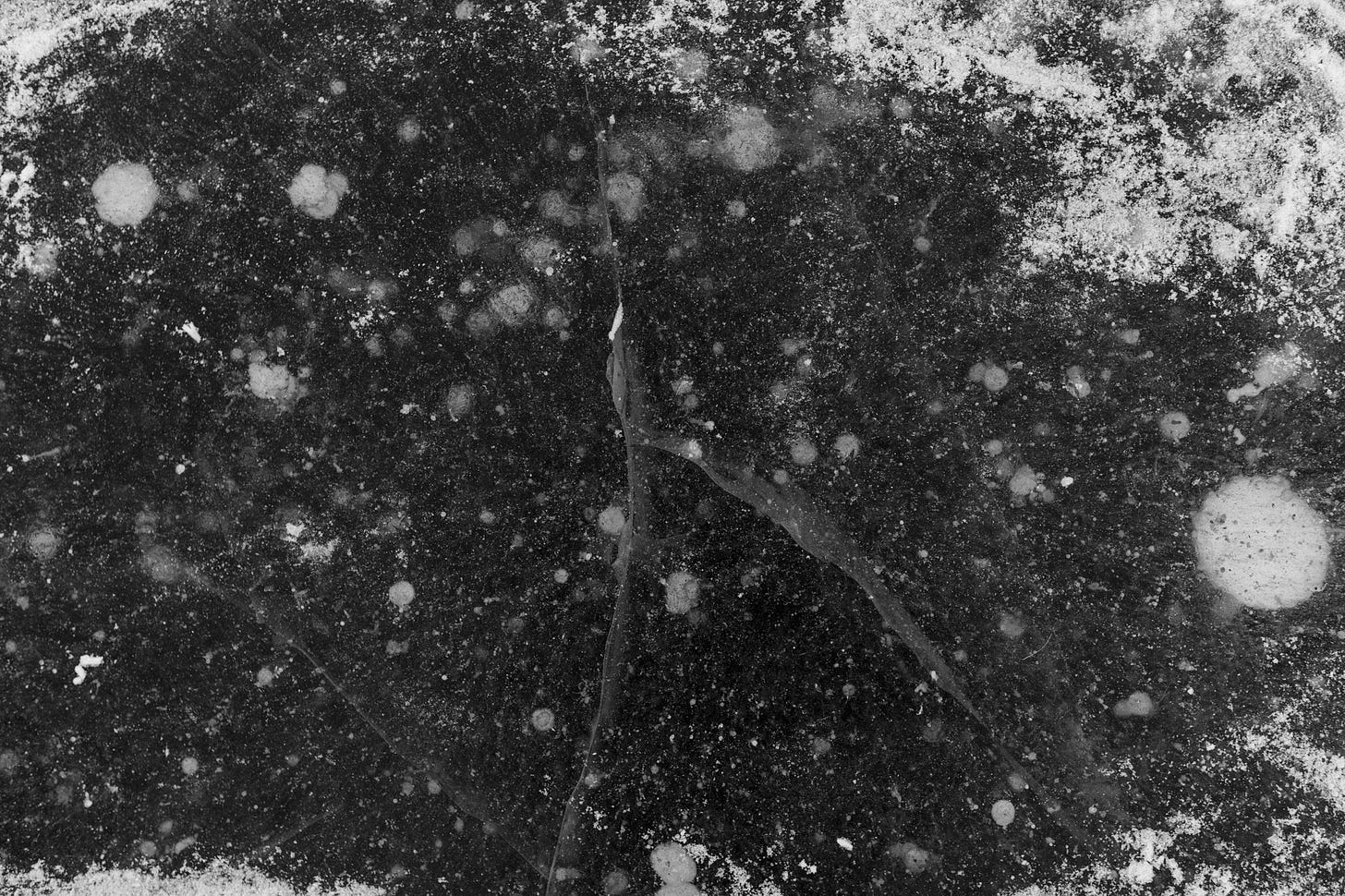
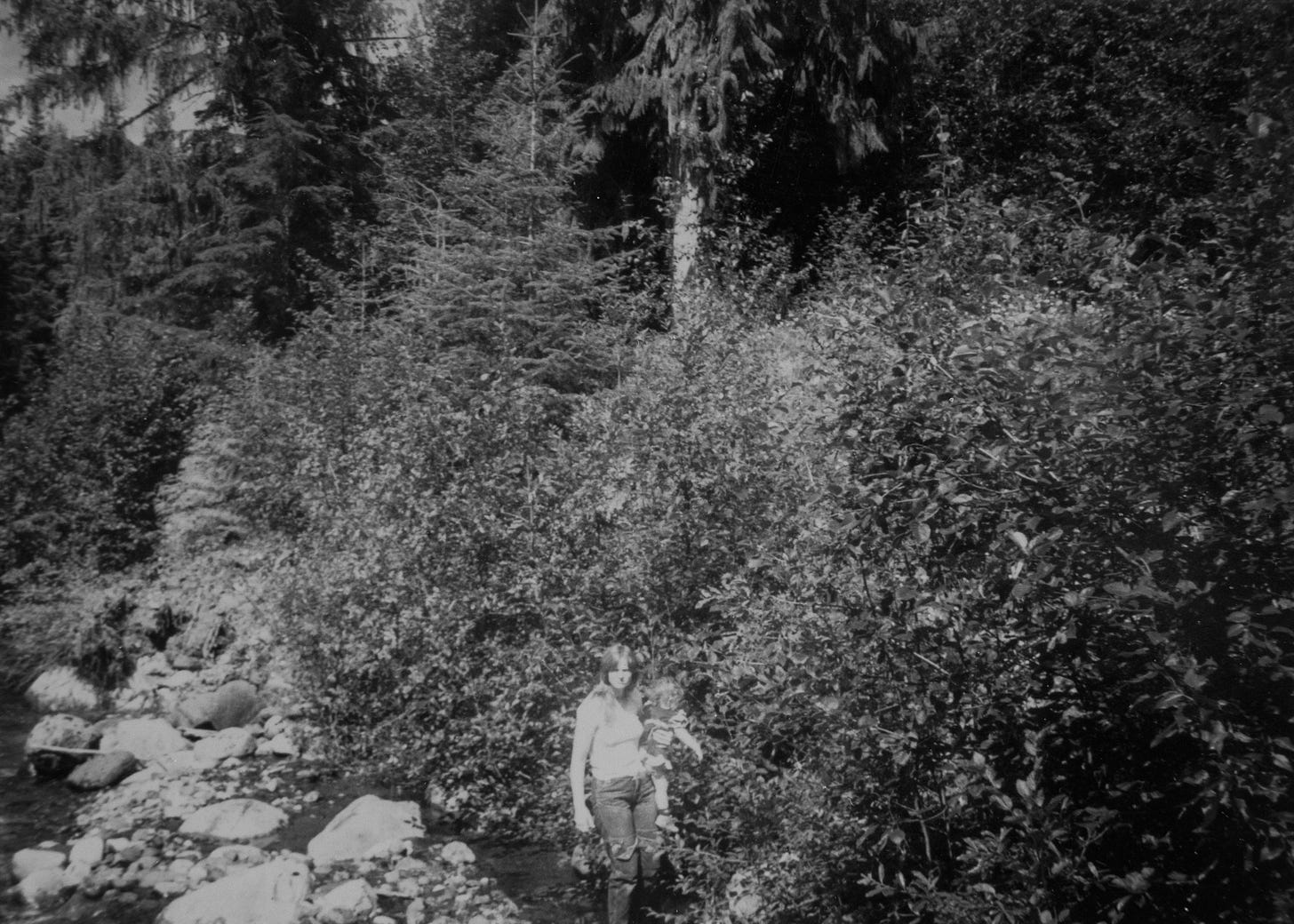
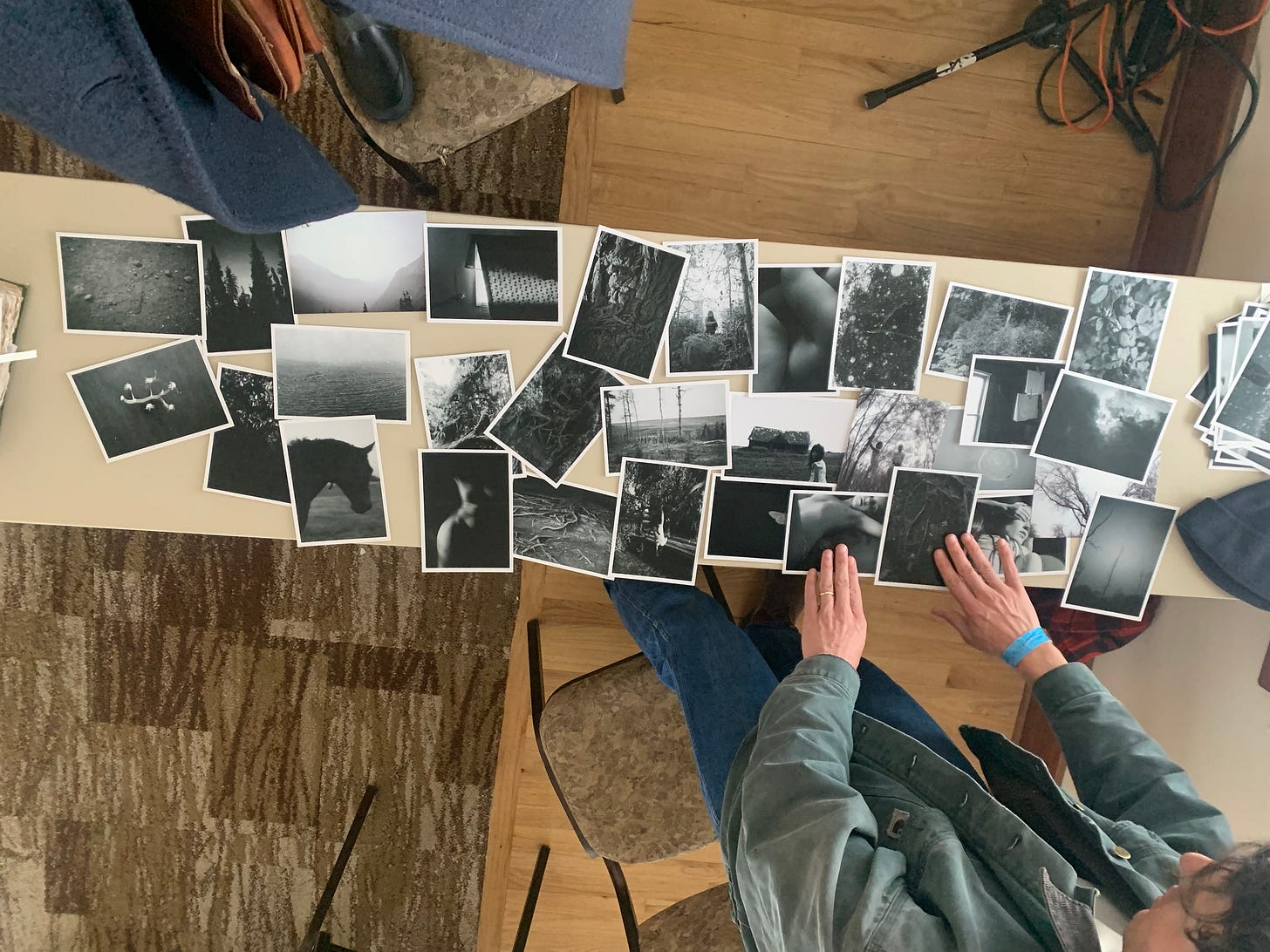
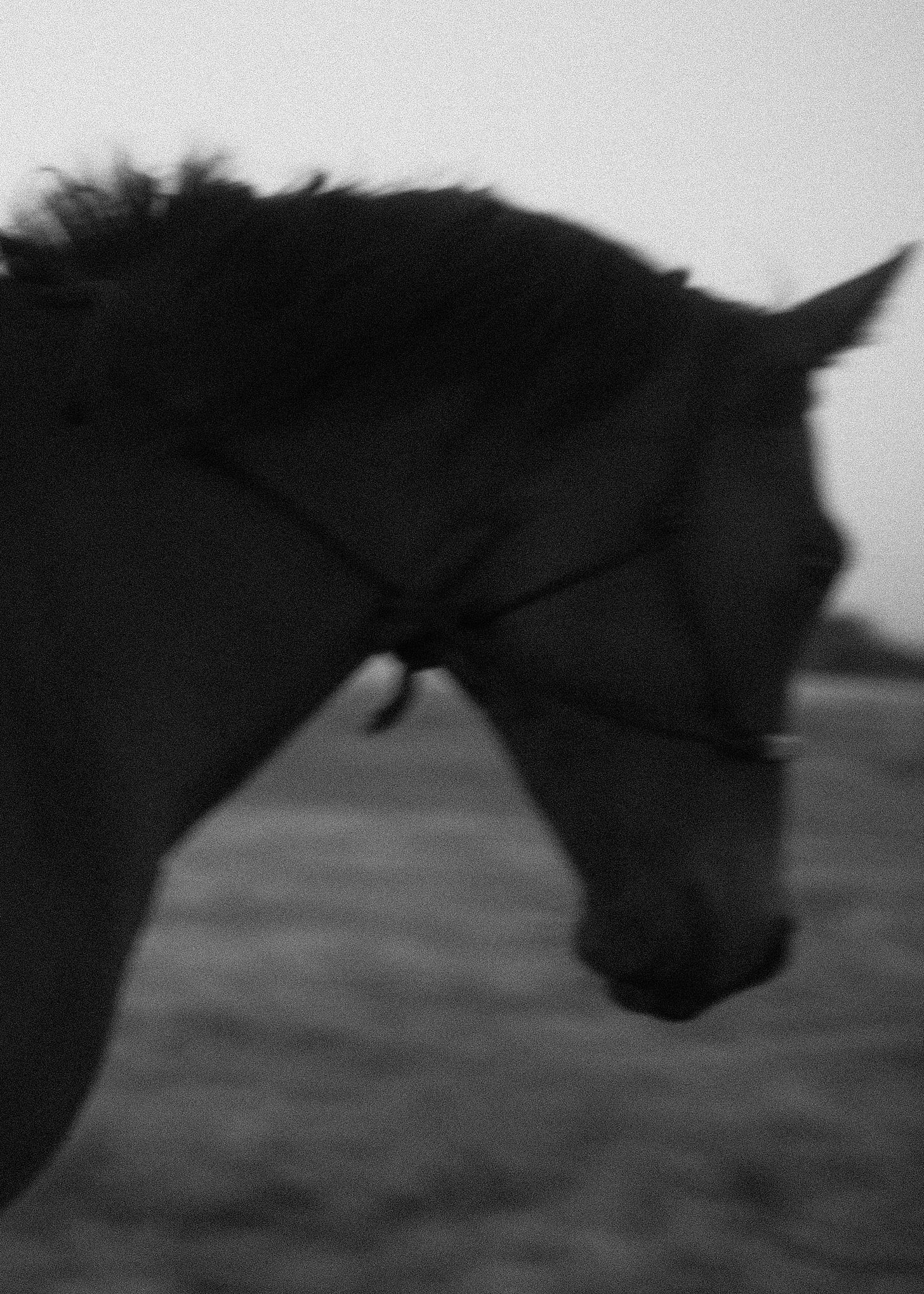
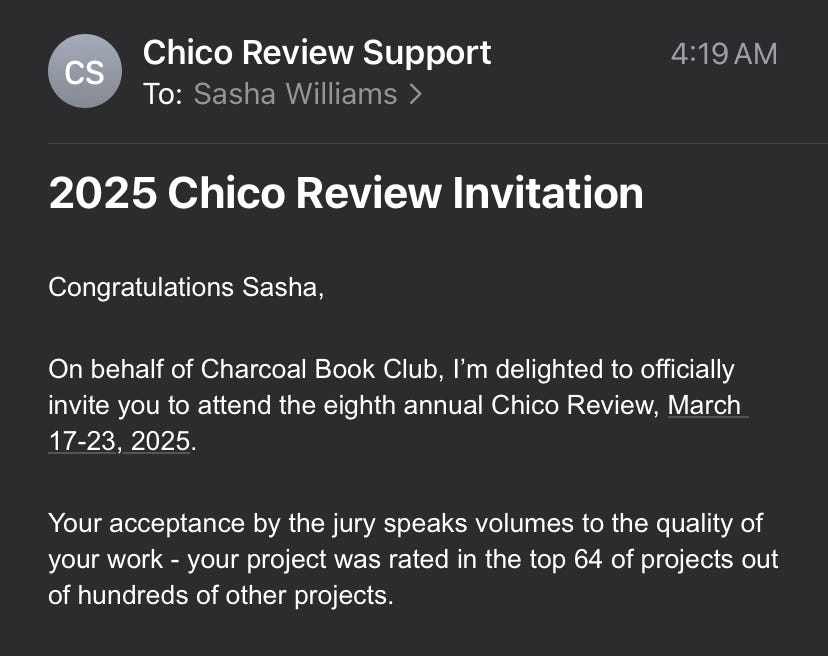
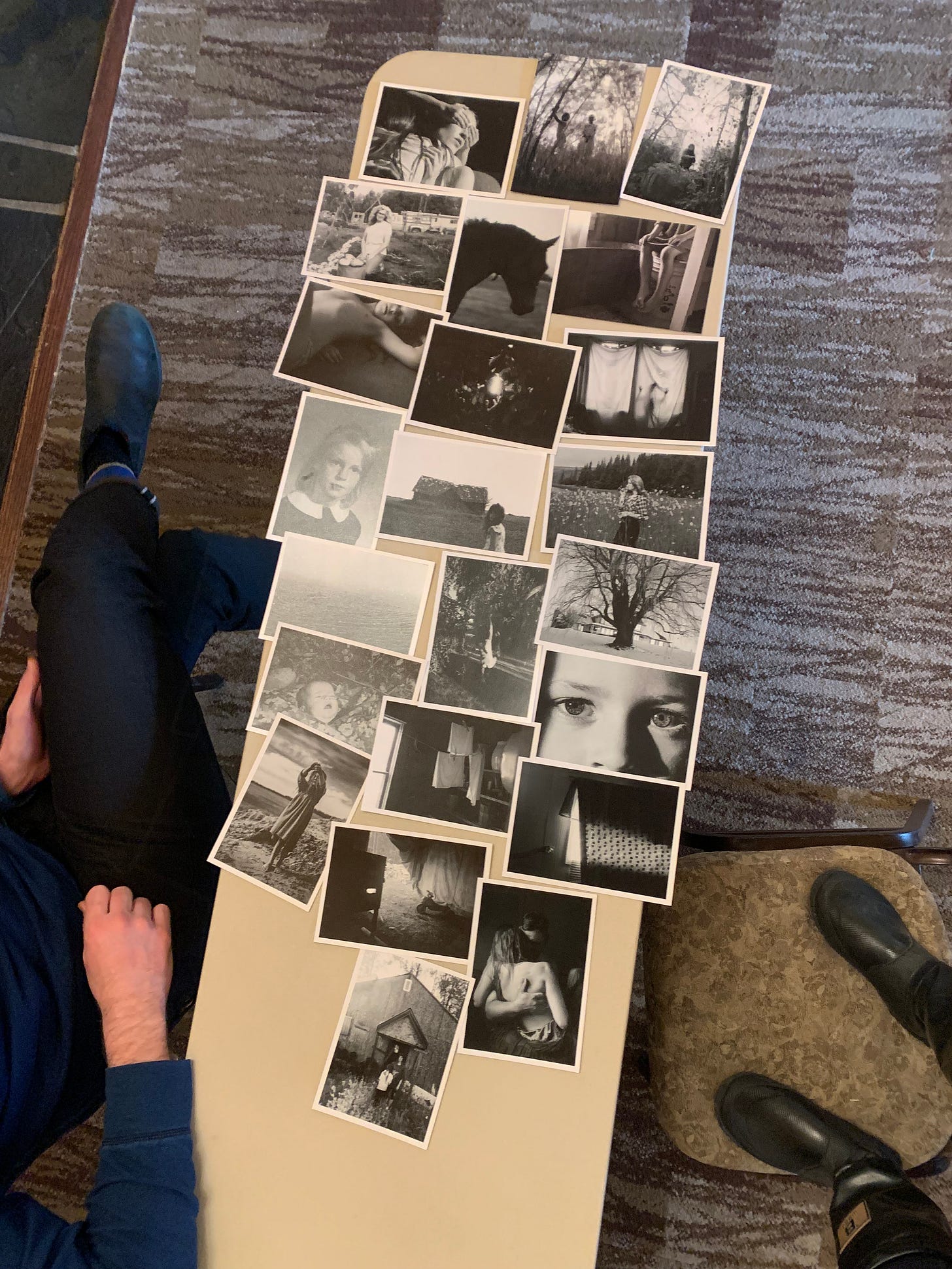
"I consider how much visual noise I consume. I’m going to diet when I get home. If I am my own reference, I am also my own authority. I do not need to outsource intuition." This will heal me! So relatable, so intuitive. Exactly what I needed to hear. This post is a treasure, so many riches to unearthed and discovered. Thank you for sharing from your loot.
Thank you, Sasha. I am moved to tears, inspired, and grateful for your honest words. I am definitely at a stage of life with big kids and looking back as to what the meaning is. I’m not sure I will really ever figure that out. I am at least encouraged to keep going. Thank you.